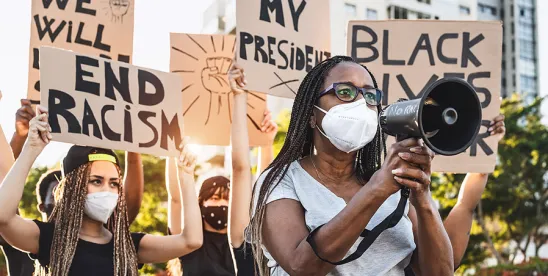New Hampshire has become the 26th U.S. state to enact a version of the model CROWN Act, which stands for “Creating a Respectful and Open World for Natural Hair.” On July 3, 2024, Governor Chris Sununu signed into law “Creating a private cause of action for discrimination based on hairstyles relative to a person’s ethnicity.” The new law goes into effect Sept. 1, 2024.
New Hampshire’s anti-discrimination law (RSA 354-A) prohibits discrimination in employment, public accommodations, and housing on the basis of age, sex, race, creed, color, marital status, familial status, physical or mental disability, and national origin, among other characteristics. The new law specifically addresses hair-related discrimination and exposes employers to civil suits. The new law, RSA 275:37-e, states:
No person shall be subjected to discrimination in employment because he or she wears a protective hairstyle. In this section, “protective hairstyles” means hairstyles or hair type, including braids, locs, tight coils or curls, corn rows, Bantu knots, Afros, twists, and head wraps. A person subjected to discrimination based on wearing a protective hairstyle shall have a private cause of action and shall be exempt from the jurisdiction of the human rights commission and the provisions of RSA 354-A. This section shall not apply to those employed by the department of corrections.
According to a national coalition advocating adoption of the CROWN Act that commissioned studies on the impact of race-based hair discrimination, in 2023, more than 20 percent of Black women between the ages of 25 and 34 “have been sent home from work because of their hair.” An employee sent home because of her protective hairstyle could argue she was discriminated against based on her hairstyle and file a private cause of action pursuant to RSA 275:37-e.
As with other protected characteristics, employers must not treat employees differently because of their protective hairstyles. Employers should review existing dress codes, grooming policies, handbooks, and training materials that require employees to wear their hair in a particular manner. Employers also should consider incorporating training for employees and managers to help ensure compliance.
More than half of U.S. states have enacted a version of the CROWN Act. Efforts continue to enact the CROWN Act on the federal level, with bills introduced in both the House and Senate earlier this year.





 />i
/>i

